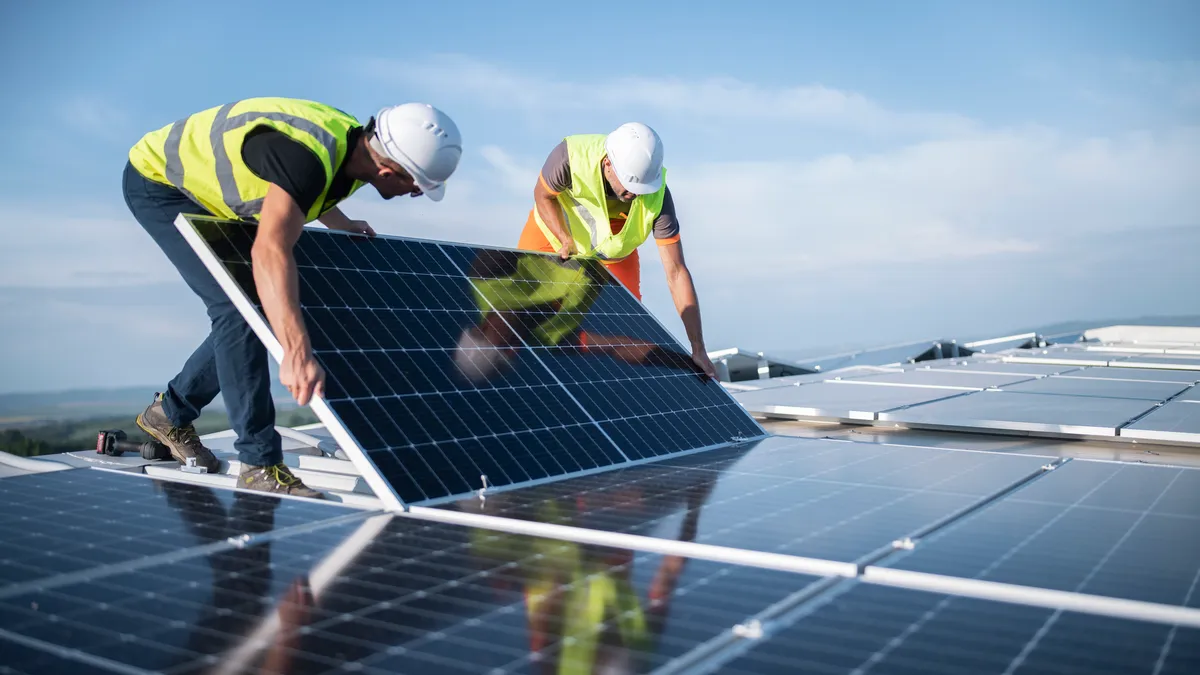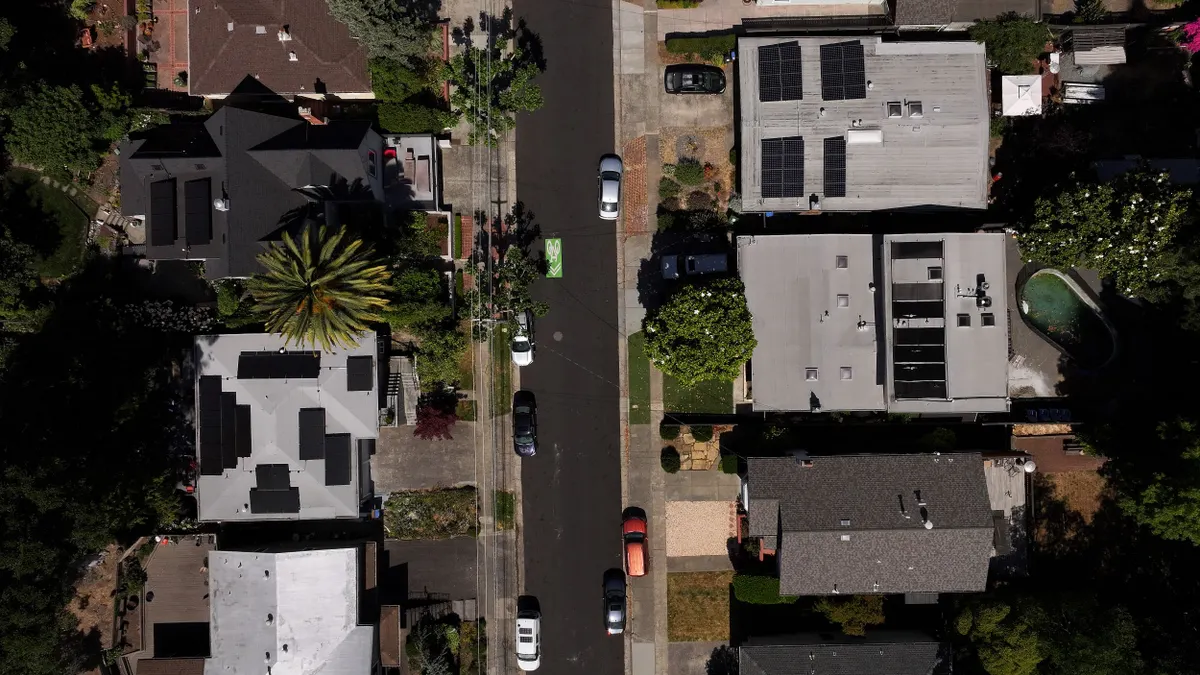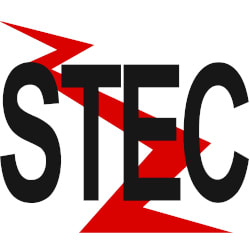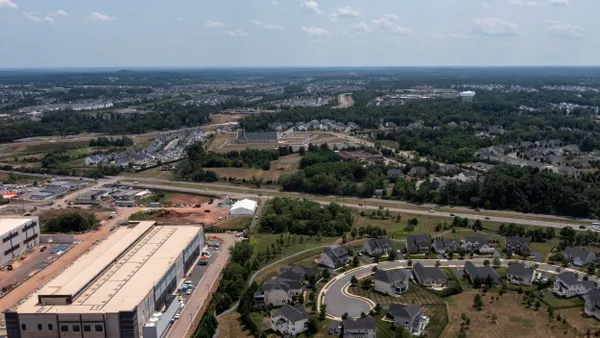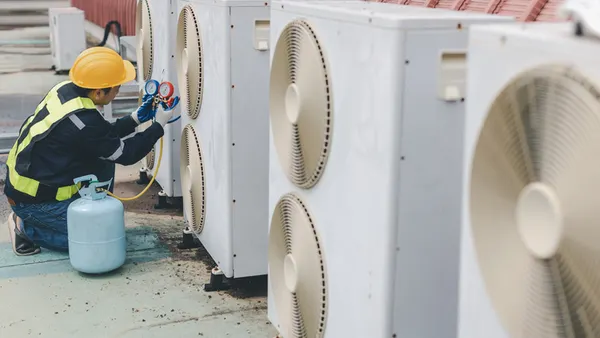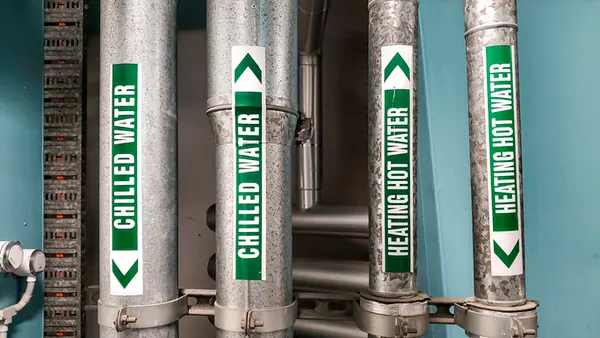Dive Brief:
- Montgomery County, Maryland, is on track to decarbonize its public transit system by producing hydrogen from water in a process powered by solar energy and storage batteries, local government officials said Tuesday.
- Construction on a bus depot covered in solar panels is scheduled to begin at the end of this year. The garage also has storage batteries and an electrolyzer that extracts hydrogen from water to power the county’s fleet of buses. AlphaStruxure, which is partnering with the county, will pay construction costs.
- When finished, the depot will be the first of its kind on the East Coast, Montgomery County officials said on a conference call.
Dive Insight:
Montgomery County, which borders Washington D.C. to the north, has a plan to achieve net zero carbon emissions by 2035, an objective it cannot reach without decarbonizing the county’s bus system.
To reach that goal, the county wants to transition to a bus fleet that runs on so-called “green” hydrogen, an emissions-free fuel generated through renewable energy.
“In this case, we are using 100% solar energy,” AlphaStruxure CEO Juan Macias said.
The only byproduct of the operation is water, said County Executive Marc Elrich.
Hydrogen is generally harvested from natural gas, but the county plans to acquire its hydrogen from an electrolyzer being built at a bus depot in Rockville.
Hydrogen fuel cell buses have demonstrated range and operational settings that fulfill the county transit agency’s requirements, Elrich said.
When finished in the fourth quarter of 2025, the depot will be covered with solar panels capable of generating 7 MW and will feature roughly 5 MW of battery storage, making it a self-sufficient microgrid capable of operating in island mode indefinitely, local officials said.
Energy infrastructure company AlphaStruxure, a joint venture of Schneider Electric and the Carlyle Group based in Boston, is partnering with the county and will pay construction costs. The county will pay AlphaStruxure a commodity charge for electricity generated at the depot, Montgomery County Director of General Services David Dise said.
“When it's finished, there'll be no other project like it in the country, and it will establish the best in class approach for others to follow,” Schneider Electric CEO Annette Clayton said in the conference call.
Batteries capable of powering a vehicle as big as a bus are so large that the battery would take up much of the vehicle’s passenger space, officials said. Fuel cells powered by hydrogen are significantly smaller.
“One of the beauties of hydrogen is that it's a power source that doesn't have to rely on being plugged into the grid in order to power buses,” Elrich said.
Construction of the depot is scheduled to begin by the end of the year. It will serve as a maintenance garage and house around 200 buses.
Correction: We have updated this story to correct the location of the bus depot. It will be in Rockville, Maryland.


